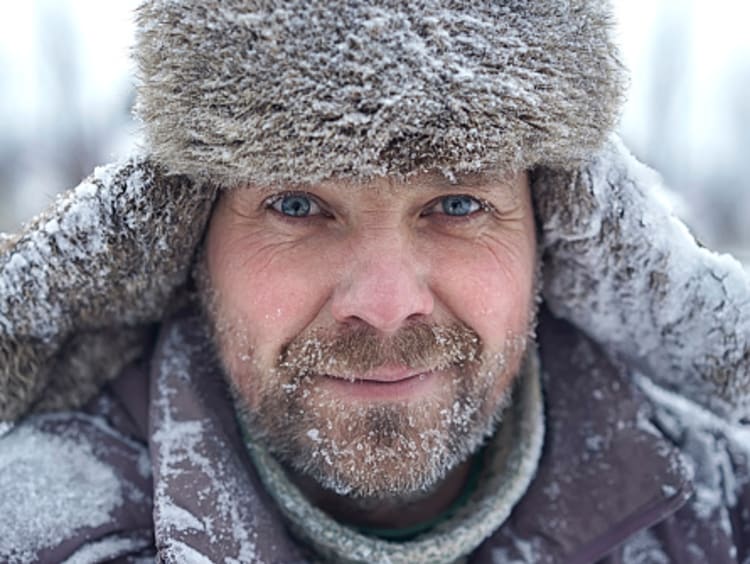Christian Book Club: “One Day in the Life of Ivan Denisovich”

While many people may think there is a lack of good Christian novels, nothing could be further from the truth. Many Christian fiction books have been published that can be viewed from a faith-based lens or were made with that intent in mind. These works also expand across many cultures and religions, reflecting the diversity of Christ’s followers. One of the most prominent countries to produce Christian fiction is Russia.
At the height of the Soviet Union’s power, they had a large network of concentration camps nicknamed the Gulag Archipelago. From 1947 to 1953, the author Alexsandr Solzhenitsyn was imprisoned in these camps and would spend much of his life recounting his struggle to survive under a repressive regime.1 A fervent Christian and critic of communism, he was the first to have a novel published about the concentration camps, although partly censored. His novel is titled "One Day in the Life of Ivan Denisovich.”
Let's explore the themes of Solzhenitsyn's novel:
Theme 1: Unjust Punishment in a Cruel World
This Christian novel explores the unfair nature of our fallen world. The main character Ivan Denisovich Shukhov ended up being accused of being a spy even though he was a loyal Soviet soldier captured by the Germans. Tyurin, the 104th squad leader, was the son of a rich farmer but has been in the camp for 19 years. Tzesar was a film director who was imprisoned before completing what would have been his first film. None of the characters seem like hardened criminals. This demonstrates that it does not matter who you are, life is ugly and will not be fair for anyone.
Theme 2: Human Dignity and Identity
Conditions in a concentration camp are designed to demoralize people and attack their basic human dignity. Prisoners are called by designated numbers like “Scha-854” to eliminate individual personalities and see themselves as just a unit. Throughout this Christian fiction book, there is not a rebellion against the guards by force but through personal beliefs. Ivan takes his hat off before a meal which shows he is still civilized and holds standards for living.
These characteristics are in contrast with other camp members such as Fetyukov who begs for scraps. Fetyukov symbolizes somebody who has lost all control but has no way to deal with the development. Despite having little to no freedom in his current situation, Ivan still strives to keep himself civilized and hold onto his identity.
Theme 3: Faith as a Way Forward
In order to fight against a regime like the Soviets, the Christian fiction author argues that it is better to work on oneself. Alyoshka is an interesting character in the novel. He is a Baptist who thinks that being in prison is a good thing because it helps to realign oneself with God. This reminds the reader of the Apostle Paul as he was in jail and went on to write many of the New Testament books.
By renewing oneself spiritually you defy those who what to control your life on Earth. If you are unwavering in your faith, being bound, imprisoned or even dying cannot hurt you since Jesus already secured your place in heaven.
‘Men Have Forgotten God’
In his 1983 speech at Harvard, Solzhenitsyn remarked at how the older generation of Russians would say the nation's troubles were because people forgot God. The Revolution that killed some 60 million Russian people, could not have happened if men have not forgotten God.2 The same mindset can be applied to the world today and all the issues that come up.
Corruption and human sin have led to many problems in our world but since the 20th century these have only multiplied. By abandoning God, we have seen the rise of repressive regimes, social strife and a loss of community. This Christian novel is also a cautionary tale of what happens when society forgets morality and turns away from God.
Conclusion
Alexsandr Solzhenitsyn was awarded the Nobel Prize in Literature and has garnered much acclaim for his efforts against communism. Like the character of Ivan Denisovich, life was cruel to the book's Christian fiction author being imprisoned and eventually kicked out of his home country. However, God blessed him with an extraordinary life and allowed him to return home years later.2
If there is a lesson worth learning from this Christian fiction book, it is that when we turn toward God, we can face whatever the future throws at us.
Grand Canyon University has been training Christians in ministry since its inception. If you are interested in pursuing a career in ministry, GCU's College of Theology has many degree programs, including Bachelor of Arts in Christian Ministry, Bachelor of Arts in Christian Studies and Master of Arts in Christian Ministry.
Retrieved from:
1 National Review, ‘Men Have Forgotten God’: Aleksandr Solzhenitsyn’s 1983 Templeton Address in September, 2021
2 New York Times, Solzhenitsyn, Literary Giant Who Defied Soviets, Dies at 89 in September, 2021
The views and opinions expressed in this article are those of the author’s and do not necessarily reflect the official policy or position of Grand Canyon University. Any sources cited were accurate as of the publish date.


